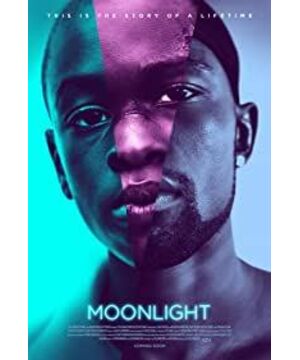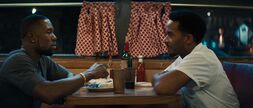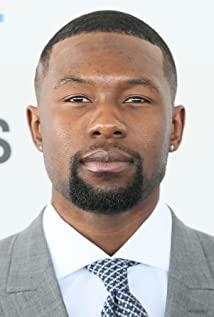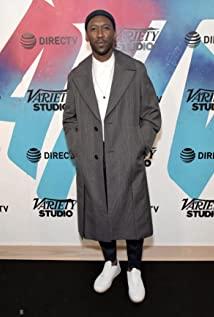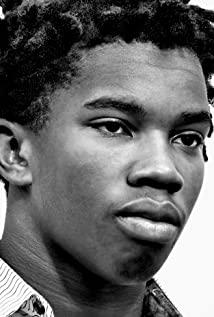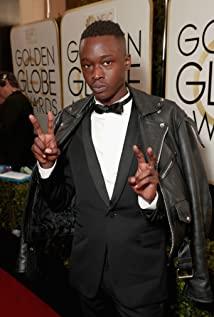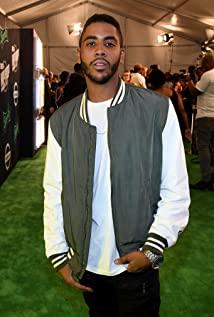The text was first published on Orange News. For more film reviews, see the public account "cocoonics".
The biggest topic of this year's Oscars should be the big oolong at the end of the best picture. That's how the best picture battle between the two hits "La La Land" and "Moonlight" ended in dramatic fashion.
As the Oscars, which is often criticized for "albinism", although the results of this year's best male and female match were given to black skin, it cannot be arbitrarily generalized by political correctness alone. Even the director of this year's best foreign language film "Salesman" (Asghar Farhadi) refused to attend the Oscars because of the anti-Trump ban, which has become an example of Oscar's "political correctness" in disguise .
"Contemporary people" like to buckle their hats.
A "politically correct" label can be placed on any film involving women's rights, race, sexuality, the environment, etc. Once a film involving a similar subject attracts attention, it is because of "political correctness," a word so powerful that people ignore the film itself. Like "your country" and "contemporary people", this word is completely reduced to a pretentious language. It seems that as long as you say these four words, you can criticize without thinking and express "what do you know" in praise of everything. " of contempt.
The hateful thing is that "political correctness" is not a mocking irony like "the people of this class can't do it", but an anti-intellectual hat. Once it is buckled, other arguments immediately give way, and the question has no debate value. Because those who refute "political correctness" will inevitably be ridiculed by "experts" for "what do you know".
It is undeniable that political factors are indeed considered by the Oscar jury, but as Bill Paxton, who died on the 25th of this month, once said:
"It's a good thing to go to a movie without any expectations, so that you can feel the disappointment and the surprise without the baggage."
(“It’s always good to have no expectations when you see a film. Then you can be pleasantly disappointed or surprised.”)
The arrival of "Moonlight" is turbulent, like a wave under the blue moonlight, beating on the beach of the new century.
This year's Oscars are more focused on newcomers than ever, with Martin Scorsese's "Silence" and Clink Eastwood's "Sully" failing to make the best picture nominations. However, for example, "La La Land" directed by Damien Chazelle (now the best director at this year's Oscar), who won five Oscars including Best Editing for "Whiplash" the year before, and "La La Land" by The film directed by Barry Jenkins, who is still inexperienced, is getting a lot of buzz.
I remember at the 86th Academy Awards, "12 Years a Slave" (12 Years a Slave) was accused of winning the best picture because of political correctness, and this time this film and "Hidden Figures" Appearing in the Oscar nominations, there are inevitably some voices. Politics aside, we cannot ignore its superb lens language and paragraph structure. By the way, an academy film like "Hidden Figures" that is nominated for an Oscar cannot escape the feminist yellow robe.
Compared with the director's 2008 debut "Medicine for Melancholy", which gently touches on racial issues with large dialogues like "Before Sunset" (Before Sunset), the film is less blunt and memorized. , but learned to let us hear his voice in ways other than his lines. The labels of "same sex" and "race" have become the initial imprint of "Moon", but after reading it, we will find that this is just a nuanced growth story of a teenager. Shy and taciturn, he grew up from a drug-hating child to a tender and tough guy who was the same as his childhood drug dealer, but he never stopped looking for himself.
Three paragraph blank narrative
The three-paragraph narrative structure was actually inspired by Hou Hsiao-hsien's "The Best Time" in the director's interview, but apart from the structure, the only similarity between the two is that they incorporate delicate and romantic personal experiences, and the story Both take place where the director grew up. Memories that come at your fingertips, along with the precipitation of time, are integrated into three stories that are both true and false. When you go halfway through your life and then look back, you can spread your emotions more restrained and prolonged, just like the "Manchester by the Sea" in the same period. (Manchester by the Sea) is shrouded in gloom.
Although the narrative is non-linear, we can still follow the coherence of character growth in Chiron's one-man show. "Moon" is undoubtedly personal, containing conflict and internalization in emotion. We follow the taciturn boy in flashbacks through the ages of 9, 16 and 23. We see his struggles, struggles and growth. However, in the selective performance of the segment, the character change in the third segment is not clear enough, especially when the second segment shows Chiron's outburst, a feeling of waiting pervades. Although the director has wisely added the third paragraph of being a tough guy before the second shady scene, this change is still a little sudden.
lost in the blue moonlight
The story begins in Miami in the 1980s, where 9-year-old Chiron has been bullied and isolated. It's not that the drug addict mother doesn't love him, it's just that the way of love is wrong, sometimes ignoring her son's feelings selfishly, and lovingly expressing possession while half asleep, which has planted the seeds of contradiction in his character. His thin body is out of tune with the environment of adolescence, he endures bullying, resists drugs, but at the end of the second paragraph, rage erupts in the body that has endured for 16 years. The "Black" we see again 7 years later is already a stranger. He sold drugs and became someone he would turn his head away from before. He makes a rookie joke as easily as those in his childhood treated him. He wears gold braces, but puts them back on silently when his childhood playmate Kevin asks him why.
In identity, he was lost. What is the id? He does everything a street drug dealer is supposed to do, gold chains and "Black" on his license plate, and where did the real Chiron go? He thought that only by becoming what society wanted him to be, could he continue to live. However, he was not like that. He was kind and gentle, and even after deliberately joking with a novice, he had to add "I'm just joking" to make up for it.
At the end when Kevin describes his life, Chiron responds that it must be bad, and Kevin replies no, he knows what he's doing, and it's happy. Chiron opened his mouth, but didn't speak as usual. The last shot goes back to him in the moonlight, and when he turns his head, he looks a little blue.
Wong Kar Wai's Pigeon Song
It is not without reason that the director is "Black Wong Kar-wai". In the third segment of the road scene where Black visits his mother and drives to meet Kevin, "Cucurrucucú Paloma" plays leisurely. The soundtrack was composed by Mexican Tomas Mendez in 1956, and Wong Kar-wai also used the same song for road footage in "Breakthrough". Another film that uses this soundtrack is Spanish director Almodóvar's "Hable con ella" (hable con ella). Although it is a tribute to Wong Kar-wai, the use of this song is always a bit abrupt. Personally, I think that the children on the sea playing with the overlapping road shots and the moon climbing upwards is an awkward point for the point. To quote a friend's point of view:
It's called Moonlight but the moon never appeared, which is wonderful.
Always, this is a work that is poetic at least in form, the shot of Chiron swimming in the middle of the sea is instantly reminiscent of Beast In the Southern Wild, a bold and rough sway shot, partially out of focus, two The author of the film is also a new director, which is full of expectations. The story is plain but better than delicate. Although the language of the camera is a little too dazzling, it can also be regarded as the director's personal style. It is worth pointing out that the success in characterization, when the audience who grew up with Chiron saw his final reconciliation with his mother, his confession with his childhood companions, and the final look back at himself in the blue moonlight, he couldn't help but feel deeply. Deep resonance.
The dark blue memories are turbulent, the phrase "don't let others decide for you" by the sea, the emotion at the sea, and then go back to the hut by the sea. Regarding growth, there is no need to be sad or anxious, no one will suddenly grow up.
As the best picture Oscar, it does have room for further growth, narrative coherence, and soundtrack, but it is definitely a best picture worthy of its name. Political blessings are inevitable, but only because of political correctness. To deny it completely would be too arbitrary.
For more film reviews, please pay attention to the public account:
View more about Moonlight reviews


